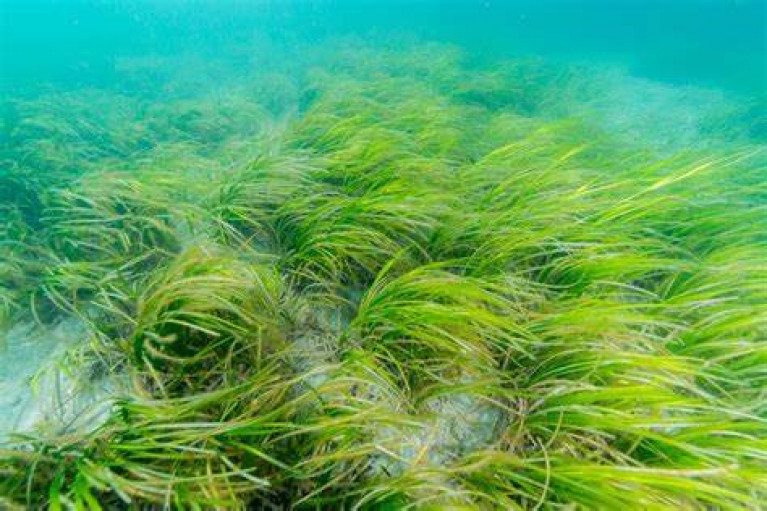Displaying items by tag: Urgent Protection
Coastwatch Fight to Save Vital Native Species Continues
A natural marine resource more important than the rain forests is in danger of dying out unless funding is provided to help protect it.
Zostera Marina is a type of seagrass which grows in the inshore areas of south Wexford, it supports biodiversity, cleans the surrounding water and helps take carbon dioxide out of the atmosphere. However, local seagrass habitats are under threat from the invasive species Sargassum muticum, or ‘wire weed’, which stunts its growth and eventually kills it.
Mick Berry of Coastwatch and local environmentalist Karin Dubsky invited members of the public and government officials to St Patrick’s Bridge in Kilmore Quay to highlight the importance of seagrass and the urgent need to safeguard its future. “England has already lost 92 per cent of its sea grass and Ireland’s levels are patchy, we don’t know how much is left,” said Mick. “We need to map it around the coast of Wexford and identify where it might be. People don’t know what it looks like, even the people living here in Kilmore, they get it mixed up with green algae. At the moment no one is doing anything to preserve it, there’s a lot of red tape holding everything up.”
As a coastal county, Wexford is at the forefront of this fight to protect this vital plant. “Seagrass is one of the top plants for sequestering ocean carbon, its way ahead of the rain forest, it’s so important and it’s right on our doorstep, there’s lots of it in Wexford,” explained Mick. “We’re pushing for funding so we can go out and find it. But we need divers to go and look for it in certain areas, the government department should be doing this not us, we’re doing it out of love.”
Salvation may yet be at hand in the form of the new Maritime Area Planning Bill which is currently before the Oireachteas and includes plans to give local authorities a role in managing inshore coastal areas. It was published on June 29 and coincided with the launch of the National Marine Planning Framework, Ireland’s first national framework for managing marine activities.
Wexford People has more.





























































